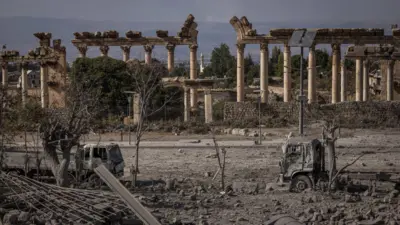We've updated our Privacy and Cookies Policy
We've made some important changes to our Privacy and Cookies Policy and we want you to know what this means for you and your data.
Water shortages 'will increase bills', Lords say
The cost of water will have to rise in parts of the UK where it is most scarce, a Lords committee has said.
But <link> <caption>the Agriculture, Fisheries and Environment EU Sub-Committee said</caption> <url href="http://www.publications.parliament.uk/pa/ld201012/ldselect/ldeucom/296/296.pdf" platform="highweb"/> </link> safeguards must be put in place to protect those unable to pay more.
Peers also urged ministers to speed up their efforts to tackle shortages and encourage suppliers to redistribute water from wetter to drier areas.
The government said a draft Water Bill would be introduced before the summer.
<link> <caption>A White Paper on future water policy</caption> <url href="http://www.defra.gov.uk/environment/quality/water/legislation/whitepaper/" platform="highweb"/> </link> was published in December 2011.
It contained long-term plans to encourage local organisations to improve water quality, and to take - in technical terms, to "abstract" - water from the environment in the least harmful way.
It also aims to reform the water industry and deregulate markets to allow business and public sector customers to negotiate better services from suppliers.
'Grasp the nettle'
The White Paper promises legislation "early in the next Parliament" and a new regime "by the mid to late 2020s" - but the Lords committee said this timeline "fails to respond to the urgency of the situation".
"While this may indeed be a complex task, as the government claim, it cannot be as complex as, say, reform of the National Health Service," the report said.
"Consumption of water, whether by industrial or domestic users, must be better adjusted to respect constraints of water availability, through abstraction controls and through economic instruments."
The committee argued that "political direction" was needed to redistribute supplies from "water-rich areas" to "water-stressed areas".
But it noted that even with those sorts of steps, the cost of water would have to rise in areas with the worst shortages - and the government should "grasp the nettle of allowing" that to happen.
Leakage is also still a concern, the peers said, but because the most obvious sources have been fixed, going further will result in "higher costs... which need to be weighed against the likely benefits".
Committee chairman Lord Carter said price increases may be "an inevitable part of helping to secure our water supplies in the future".
But he continued: "If we are to ask people to pay more for this crucial resource in challenging economic times, we must ensure that they fully understand what they are paying extra for.
"They must feel connected to their local areas and know the benefits that freshwater lakes, rivers and streams provide to their local wildlife and ecosystems.
"Without the active involvement of local groups and individuals who know and care for the freshwater bodies where they live, we will struggle to rise to the challenge of ensuring proper protection of our water environment as an uncertain future unfolds."
The peers said Europe as a whole was not doing enough on the issue of water, and the European Union should do more to encourage all member states to develop national water-scarcity and drought-management plans.
A Defra spokesman said bills were set to rise with inflation between 2010 and 2015, which would provide ÂŁ22bn of investment in the water infrastructure.
"We are aware that we need to tackle the legacy of damaging abstraction and will do so with the introduction of a draft Water Bill for pre-legislative scrutiny before the summer recess," he added.
The Lords report came as Environment Secretary Caroline Spelman suggested standpipes could be needed in the streets next year if England endures another dry winter.
Top Stories
More to explore
Most read
Content is not available








